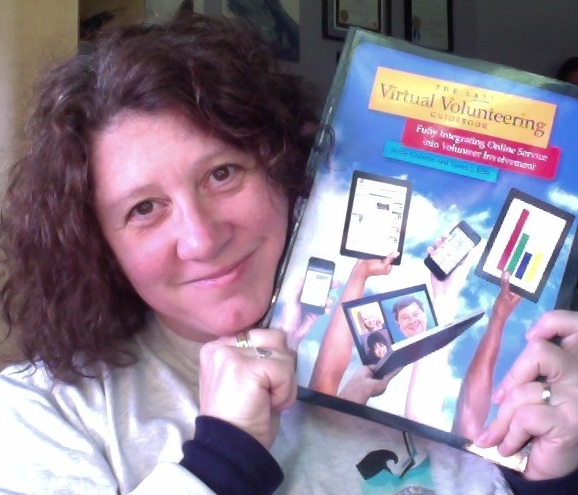 In a conversation with a friend participating in Myanmar’s first-ever hackathon to benefit causes or nonprofits, as well as reviewing recent, similar hackathons all over the world, and other one-day tech events for good like edit-a-thons, it seems to me that the easy elements of putting together these events is securing a space for the event and getting skilled volunteers for such, but the much harder part is identifying projects for these volunteers to work on.
In a conversation with a friend participating in Myanmar’s first-ever hackathon to benefit causes or nonprofits, as well as reviewing recent, similar hackathons all over the world, and other one-day tech events for good like edit-a-thons, it seems to me that the easy elements of putting together these events is securing a space for the event and getting skilled volunteers for such, but the much harder part is identifying projects for these volunteers to work on.
I’m also wondering if any of these projects get evaluated six months or a year down the road, to see if the organization or cause that had an app or web site or database or whatever developed has benefited from the development. For instance – are these apps that are developed actually used six months later?
My favorite hackathon is Knowbility’s Accessibility Internet Rally, which brings together web developers, as volunteers to both learn accessible design techniques and then apply those techniques to building web sites for nonprofit organizations. It’s my favorite because the event is always so much fun, the volunteer web designers take the skills and knowledge they learn from the hackathon back to their workplaces, and the nonprofits still love their web sites many months later.
But it’s pretty easy to sell the idea to nonprofits of volunteer web designers re-creating their web sites. My review of hackathons and edit-a-thons shows that identifying other projects, like apps development, is MUCH more difficult. If you walk into a nonprofit and say, “Do you want an app to help you in your work?” most nonprofits won’t have an answer. Same if you say to most nonprofits, “What wikipedia pages do you wish had better info related to your organization’s mission?”
So I’ve been thinking: how can hackathon or edit-a-thon organizers identify projects or causes for the event? Here are some of my initial ideas. Please add more!
- Research nonprofits in your community, and get a sense of how many they are. If you are in a small town, you may want to make a list of every nonprofit in your town (which you can find on Guidestar) and then do some research to see which are active (do they have a web site? does the org’s name come up in a Google or Bing search? Can you find an email address for the org?). If you are in a large city, don’t be under the illusion that you can reach every one of them – even big cities with nonprofit associations cannot say that every nonprofit is a member.
- Ask organizers what nonprofits they work with in any way – as a volunteer, as the spouse of a volunteer, as an event participant, etc. In short, look for nonprofits where someone involved in your event already has a personnel connection.
- Review what apps previous hackathons elsewhere have created for nonprofits, or what edit-a-thon efforts have benefited nonprofits. Also see this very long list of apps that have been developed for specific nonprofits. Would such app development be appropriate for any nonprofits in your community, at least in theory?
- Meet with nonprofits more than once, and with as many different staff members as possible. Just sending an email announcing the event won’t be enough to get nonprofits interested in participating. Sit down with nonprofit representatives face-to-face and speak in non-tech language as much as possible. And remember that different staff members will have different ideas for needs – for instance, here is a list of apps I envisioned that managers of volunteers might want/need.
- Don’t meet with any nonprofit that you haven’t gotten to know via its web site – you want to already have an idea of what the nonprofit does, whom it serves, its mission, etc. You may want to do a mapping exercise with the nonprofit regarding how it reaches and serves clients, to identify ways an app or database might help. When asking them what their biggest challenges are, you might want to add “except for fundraising” because fundraising will almost always be the #1 challenge for every nonprofit, and most participants in hackathons want to work on projects related to nonprofit missions/programs, rather than fundraising (at least that’s my experience).
- Have a list, in writing, of what a nonprofit would be committing to if they decide to participate. What are the dates and times nonprofit staff would need to meet with organizers and to be onsite at the event? How many hours do you estimate their participation will require? What are your expectations of the nonprofit after the event in terms of evaluating whatever is developed as a result of your event?
- If you want to create a smart phone app, have data to show nonprofits that demonstrates that a significant number of potential volunteers, potential clients, and current volunteers and clients, have smart phones. If you cannot prove this, most nonprofits are not going to be interested in investing in smart phone app development.
Those are some of my ideas. What are yours? Share them in the comments here on my blog, or on this thread on TechSoup.






